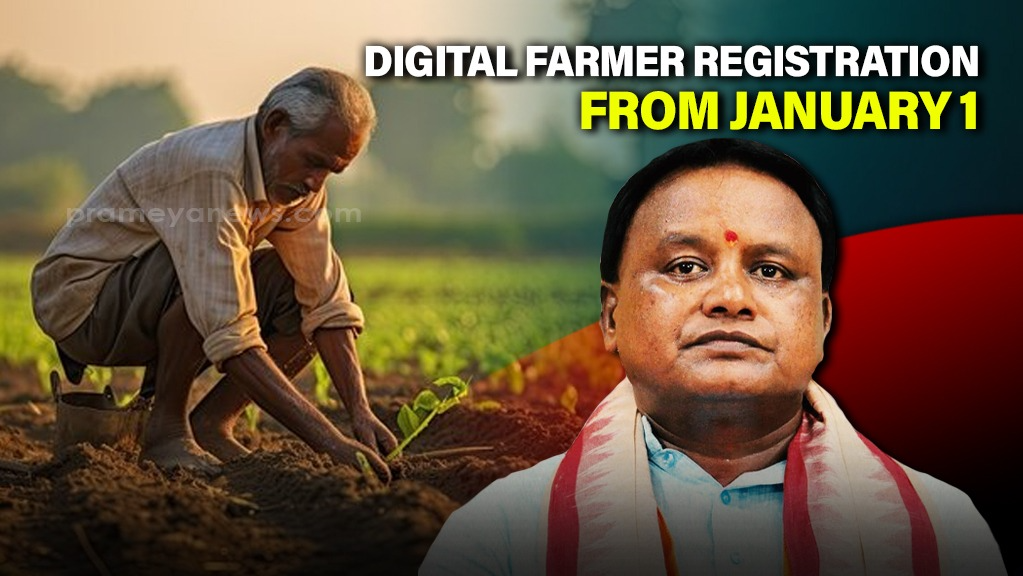

Bhubaneswar, Dec 30: In a significant move to digitize the agriculture sector, the Odisha government is set to begin a comprehensive farmer registration process across the state starting January 1. This initiative will provide farmers with a unique digital identity, akin to Aadhaar, which will be linked to various agricultural records.
The digital identity, known as the Krushak Parichaya Patra (Farmer ID), will be connected to land records, livestock ownership, crop details, and benefits availed under different government schemes. This integration aims to streamline services and make it easier for farmers to access various benefits.
A senior officer from the Agriculture department stated, “The registration will be a joint effort of the Agriculture and Cooperation department. Camps will be set up at the Panchayat level, extending to villages, to assist farmers with the registration process.”
Farmers will undergo an e-KYC process, which can be completed through web or mobile applications. Government officials will assist in completing this process or guide farmers to complete it themselves. Additionally, nodal officers and technical coordinators will be appointed at the state, district, and block levels to facilitate the process and resolve any technical issues.
To ensure smooth registration, the state government will launch an extensive awareness campaign to inform farmers about the process, its benefits, and the required steps. Upon successful registration, each farmer will receive a unique Farmer ID.
Priority will be given to farmers already registered under the PM-Kisan scheme, as they will require minimal documentation, especially concerning land records. The goal is to complete the entire registration process by March 31, 2025.
Highlighting the benefits of this digital registry, the officer explained, “Farmers will be able to authenticate their identity digitally to access services such as crop loans, crop insurance, MSP-based procurement, and connect with agri-input suppliers and buyers of agricultural produce with minimal documentation and without the need to visit various offices.”
Currently, farmers face repeated verification each time they apply for agricultural schemes, often involving additional costs and causing delays. The new farmer registry aims to eliminate these hurdles, offering a more efficient and hassle-free experience.
The data collected through the registry will not only ensure more transparency but also enable the state government to design better policies, including accurate crop production estimates and pricing strategies for agricultural produce, thus benefitting farmers with evidence-based decisions.